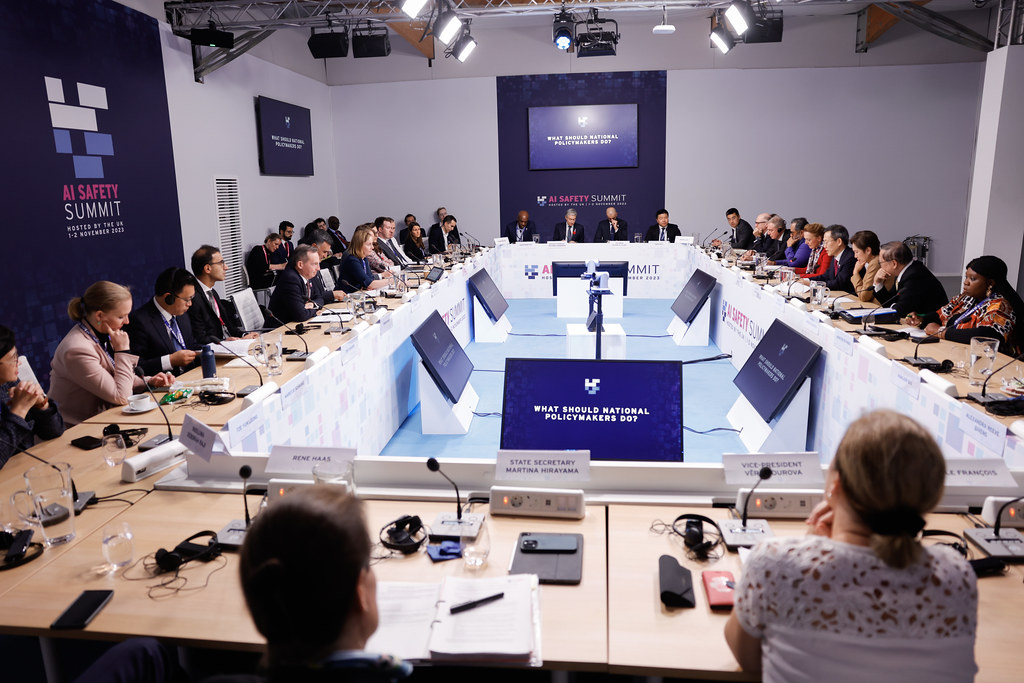Water Wars: Duterte Entrenches New Normal in South China Sea
Duterte declares fishing ban within Scarborough Shoal

Presidents Duterte and Xi meet at APEC Summit (Photo: CNN)
Published by The Lawfare Institute
in Cooperation With

Duterte declares fishing ban within Scarborough Shoal

Presidents Duterte and Xi meet at APEC Summit (Photo: CNN)
In a stark upending of the status quo, Philippine vessels have had access to traditional fishing grounds around Scarborough Shoal for the past month. This breakthrough followed a State visit to Beijing in mid-October, where Chinese President Xi Jinping and Philippine President Rodrigo Duterte finalized a raft of strategic and economic deals, including enhanced maritime cooperation. Though the Chinese Coast Guard still patrols the area and blocks access to the lagoon within Scarborough Shoal, analysis from Lawfare suggests that this modus vivendi complies with the Hague Tribunal’s arbitral award.
Presidents Xi and Duterte reaffirmed the deal during this weekend’s Asia Pacific Economic Cooperation (APEC) summit. Xi also raised the hope that the South China Sea issue would be “transformed” into an opportunity for “friendly cooperation” between Manila and Beijing. Duterte seemed to make good on Xi’s offer later in the week as Manila announced a fishing ban within Scarborough Shoal’s lagoon.
National Security Advisor Hermogenes Esperson told reporters that Scarborough Shoal’s lagoon would be declared “a sanctuary” off-limits to fishing. It is unclear whether the executive order applies only to Philippine fishermen. The arbitral tribunal found that Scarborough Shoal was a traditional fishing ground for Chinese, Filipino, Taiwanese, and Vietnamese fishermen; there are concerns that a more broad-based fishing moratorium might increase tensions with Taiwan and Vietnam. It also remains to be seen whether Beijing will interpret the fishing moratorium as implying Philippine sovereignty over Scarborough Shoal, a consistent sticking point in bilateral relations. Esperon, however, suggested that the ban is intended to be a face-saving measure reciprocating the de facto fishing moratorium created by Chinese Coast Guard vessels blocking access to the lagoon. In announcing the ban, for example, Esperon stated that, “If they [China] don’t want to allow fishing there, we don’t want to allow fishing there either.”
The Chinese government has avoided directly indicating whether it supports the moratorium. Philippine Presidential Communications Secretary Martin Andanar alleged that President Xi supported the sanctuary plan in private meetings. Chinese Foreign Ministry Spokesperson Geng Shuang, however, was more reserved, saying that Beijing made “appropriate arrangements” allowing Philippine fishermen to operate around the Shoal, while reaffirming that, “China’s sovereignty and jurisdiction of [Scarborough Shoal] has not and will not change.” For a view as to what this means for Philippine fishermen, see this wonderful piece by Ana Santos in the Lost Angeles Times.
In other news...
The Philippines
Duterte’s more independent foreign policy continued to mature on other fronts as well. President Duterte invited President Xi to visit Manila and reaffirmed that “we will find ourselves mutually agreeing on so many things and align our foreign policy towards the development of Asia, strengthening of ties among countries in the region, with China leading the way in the economic development.” Philippine Foreign Minister Perfecto Yasay also confirmed reports from last week that Beijing “offered opportunities for them to develop and train, to make sure that their livelihood as fishermen will be strongly supported.” At the same time, Philippine and US military officials agreed to scale back joint exercises and reduce US troop deployments. Philippine spokesperson Brigadier-General Restituto Padilla said that “close cooperation” on humanitarian assistance, disaster relief, counter-terrorism, and maritime security would continue. It appears that this deal would continue, in a more modest form, the 2014 Enhanced Defense Cooperation Agreement, which Duterte at various points has intimated might be suspended.
The Philippine Coast Guard completed a deployment by Scarborough Shoal, begun a week after fishing grounds were first reopened, without incident. Notwithstanding increased bonhomie with Beijing, Manila announced a 9 million USD upgrade to port facilities at Thitu Island, the largest feature in the South China Sea controlled by the Philippines. Representative Johnny Pimentel told reporters that an improve port will “vastly improve accessibility to the area and bolster the country’s claims in the West Philippine Sea.”
China
President Xi was busy on the sidelines of this week’s APEC conference. In addition to speaking with Duterte, Xi urged Vietnamese President Tran Dai Quang to “solve disputes through bilateral consultations and dialogues [and] adhere to a cooperative path of ‘shelving differences and engaging in joint development.’” Japanese Prime Minister Abe also met with President Xi and said that the two countries should “forge a stable and good relationship” by capitalizing on anniversaries in bilateral relations over the next few years. This was the first in-person meeting between the two rivals since September.
Vietnam
Chinese officials have not taken kindly to news last week that Vietnam has resumed building on Spratly Island, the largest Vietnam-controlled feature in the South China Sea. Chinese Foreign Ministry Spokesperson Geng Shuang called on Hanoi “to truly respect China’s sovereignty and legitimate rights and interests, immediately stop its illegal occupation and construction, and withdraw their personnel and facilities.” He went on to say that Beijing “require[s]” Vietnam to avoid actions that would “complicate the situation.”
Analysis, Commentary, and Additional Information
Two interesting pieces on US strategic thinking in the South China Sea. First, Chris Cavas at Defense News reports on US Pacific Fleet Commander Admiral Scott Swift’s views on China’s maritime militia, a semi-official group of organized fishermen that support Chinese sovereign and jurisdictional claims. Thomas Shugart at The National Interest outlines how the Army’s long-range missiles could counteract Chinese anti-access, area-denial capacities stationed on artificial islands in the South China Sea.
Another series of pieces take a wider lens on South China Sea disputes. Aileen San Pablo-Baviera at the Straits Times argues that traditional understandings of sovereignty and control are not applicable in the South China Sea. Tatsuya Fukumoto and Yuko Mukai take a more conventional approach to analyzing the contest for air supremacy in the region. Zhang Xu at CRI English summarizes Xi Jinping’s speech on China’s role at the global “vanguard” of economic development. Truong Minh Vu and Nguyen Thanh Trung at AMTI explain the delicate balance that Hanoi must strike in charting a new foreign policy trajectory during the Trump administration.
Water Wars is our weekly roundup of the latest news, analysis, and opinions related to ongoing tensions in the South and East China Seas. Please email Chris Mirasola with breaking news, relevant documents, or corrections.


.jpg?sfvrsn=f557f72a_4)

